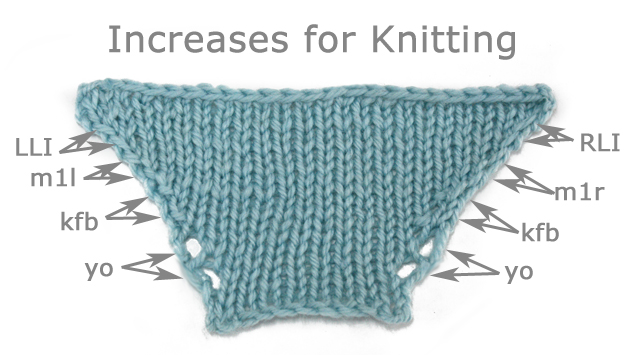
Puzzles may have a meditative and relaxing effect on the brain. They boost dopamine levels, which can help calm the brain. They can also improve your creativity. Many puzzles require you work out a solution. This can improve your creativity. Whether you're looking for an escape from the daily grind, or you'd simply like to improve your focus and concentration, puzzles are an excellent option.
Solving puzzles is very meditative.
Solving a puzzle is a great way to reduce stress and create a meditative experience. It trains the brain to work together to solve problems, and it releases dopamine, a neurotransmitter that is helpful in focusing, concentrating, and retaining information. It can also improve one's mood, confidence and mood.

It calms the brain
Puzzles can be calming and have many health benefits. They stimulate both the right and left brains and encourage flexibility, reflection, patience, and perseverance. They are the perfect way to unplug from the digital world. Solving puzzles also releases dopamine which is a neurotransmitter that helps with motivation and reward. These neurotransmitters can be released when you solve a puzzle and bring a smile onto your face.
It increases dopamine
Relaxation puzzles may increase brain dopamine levels. These puzzles are challenging but not too stressful. They make you more alert and active, which can reduce stress and fatigue. The happy chemical dopamine is also released, making you feel satisfied after completing the puzzle.
It boosts creativity
Puzzles can be a way to inspire your mind to think creatively and stimulate curiosity. Puzzles also encourage cooperation and open communication. To solve a puzzle, you will need to use different skills such as logic, reasoning and problem-solving ability.
It increases memory
Puzzles can improve memory by engaging the brain in important ways. For instance, they increase vocabulary, strengthen connections among brain cells and foster new relationships between subjects. Additionally, they improve social interaction among people who are suffering from memory loss. Research in the International Journal of Geriatric Psychiatry shows that puzzlers perform better on tests.

It increases problem-solving
Research shows that solving puzzles can increase your problem-solving abilities. Solving them stimulates the production of dopamine, a neurotransmitter that helps you concentrate, focus, and remember information. It can also impact your moods and personality. It's thought to help reduce stress and anxiety.
FAQ
What are educational hobbies?
An educational hobby involves a sport or other activity where you can learn something from doing it. You could choose to learn how to play an instrument or play sports.
The key thing is that it should be fun and enjoyable for you. While you don't need to do it every day, if bored you might consider other activities.
You should also make sure that you are not spending too much money on these activities. It could end up costing your more than it's worth.
Is it possible make a living from a hobby?
Not necessarily.
But if your passion is to start a business, you might be able to make a lot of money.
Let's suppose you enjoy cooking. You enjoy healthy food so you opened a restaurant.
You only offer organic meals from scratch. Customers pay a small charge to cover the cost of ingredients and labor.
You grow your clientele and eventually you hire employees who can work with you.
You will eventually be able to expand your menu with vegan options and gluten-free choices, as well as desserts.
This scenario allows you to have the lifestyle you want and a business you can be proud of.
But, it doesn't mean your day job must be abandoned.
Instead, you could simply run your restaurant while still holding down your regular 9-5 position.
What are observation hobbies?
Observation hobbies involve watching people do the things they love. These hobbies could include reading books, watching sports, or going on vacation. It could also be observing other people as well.
Because they teach you how to think creatively, observation hobbies are great. This knowledge can be used later to help you with projects that you are working on for others or yourself.
If you are passionate about something, you will find it easier to learn about it.
For instance, if football is something you are interested to know about, you can watch the game or read a book. If you want to learn more about photography, you could take or visit exhibitions.
If you love to play music, there are two options: either buy a new guitar online or follow along with the songs.
If you like cooking, you could cook your own meals or visit restaurants.
If gardening is your passion, you can grow vegetables and flowers.
You can take a dance class, or just go out with your friends if dancing interests you.
If you enjoy painting, you might paint pictures.
You could also write poems or stories if you enjoy writing.
You can draw pictures if your passion is drawing.
If you are passionate about animals, you can look after them or work at the zoo.
You could choose to study biology, maths, chemistry, or physics if you are interested in science.
If you like history, you could read books, watch films or listen to podcasts.
If you enjoy traveling, you can travel around the world or just explore your own area.
Statistics
- The Role of the Mind in Sex, Dating, and Love: Men in the “humor” condition received phone numbers from 42.9% of the female participants and were refused 57.1% of the time. (time.com)
- A new survey by Pew Research Center of teens ages 13 to 17 finds that 36% of girls feel tense or nervous about their day every day; 23% of boys say the same. (pewresearch.org)
- Much of this decline reflects the fact that teens are less likely to work today than in the past; among employed teens, the amount of time spent working is not much different now than it was around 2005. (pewresearch.org)
- 37% Video Games 36% Travel 36% Health and Fitness (quizexpo.com)
- I am 100% biologically a woman (discover.hubpages.com)
External Links
How To
How to Start Baking
Baking is a process in which food is prepared from flour, eggs, sugar, butter, etc. The main ingredients used in baking are flour, fats, sugars, leavening agents, salt, and water. This article will show you how to make bread. We'll use common ingredients such as yeast, flour, milk powder and egg whites, butter or olive oil, salt and honey, and water.
These ingredients must be combined in order to bake bread. First, add the dry ingredients (flour and yeast) to your bowl. Then, add your wet ingredients (milk powder, eggs white). Mix them together. The honey should be added to the dough. Knead the dough until it is smooth. Let the dough rise for around 30 minutes. After the dough has been rising for around 30 minutes, it should become soft and light. Roll the dough out and place it on a baking tray. Bake at 180C for 15 min.